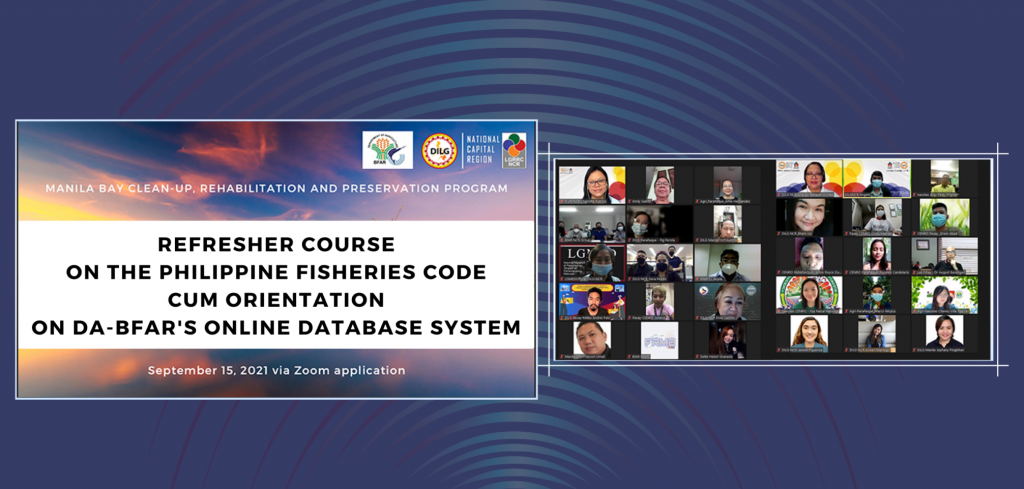
Experts agree: Metro Manila is a coastal megacity. Despite the regionâs rapid urbanization and service-oriented economy, fisheries remains an important economic activity for particular sectors in the five coastal cities of Pasay, Las Piñas, Navotas, Parañaque, and Manila. Thus, local governance practices should reflect this reality.
Towards this end, DILG-NCR, through the Manila Bay Clean-up, Rehabilitation, and Preservation Regional Program â Management Team, conducted a refresher course on the Philippine Fisheries Code of 1998 on September 15, 2021. Further, experts from the Department of Agriculture â Bureau of Fisheries and Aquatic Resources (DA-BFAR) briefed functionaries of these coastal cities on the DA-BFAR Online Database System.
Relatedly, in a recent Fisheries Compliance Audit (FishCA), only Navotas City got a passing mark while the four other coastal LGUs of NCR were recommended to undergo further validation.
âWe understand that it (Fisheries Code compliance) is most challenging⦠since we are in the urban area. Mahalagang maalam tayo sa mga rules and responsibilities.â Said Assistant Regional Director Atty. Ana Lyn R. Baltazar-Cortez, emphasizing how crucial the roles of the coastal LGUs are in clean-up, rehabilitation, and preservation of coastal resources.
The refresher course aims to fill the gaps in the LGUâs knowledge base as identified in the FishCA validation conducted last August.
Atty. Cirus Jansen Jacela from the Legal Division of DA-BFAR provided the legal basis covering the duties and responsibilities specific to coastal LGUs. Per the Philippine Fisheries Code, LGUs have the jurisdiction over municipal waters. When there are disputes between LGUs that share borders, they have a responsibility to settle such disputes amicably among themselves and collaborate in managing coastal resources.
To assist the coastal LGUs and their residents in their responsibility to manage, conserve, develop, protect, and utilize the resources within municipal waters, Mr. John Edgar Y. Cadag and Ms. Febbie Moleda introduced the DA-BFAR Online Database System. The said system aims to streamline the registration of fisher folks, fishing vessels, and ancillary gears on a national scale. Based on the information contained in the database, DA-BFAR, in partnership with the coastal LGUs concerned, may then design the appropriate fisheries management and biodiversity conservation plan and enact the measures needed to implement the same.
